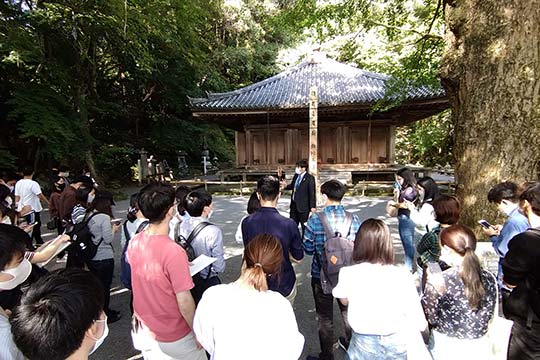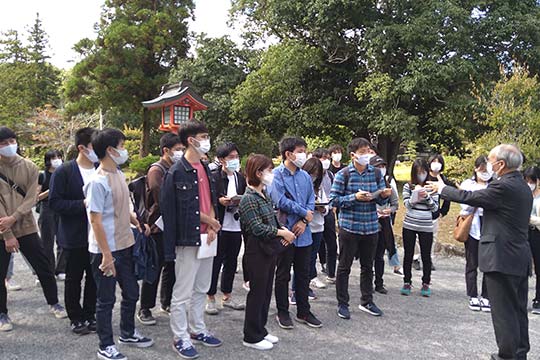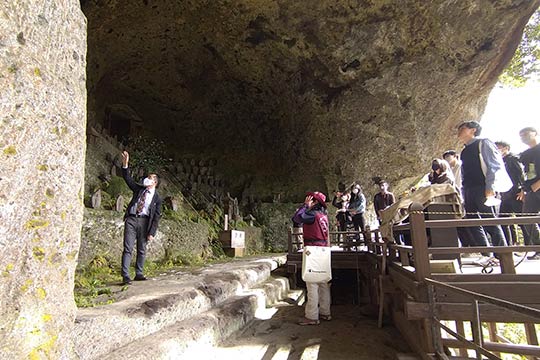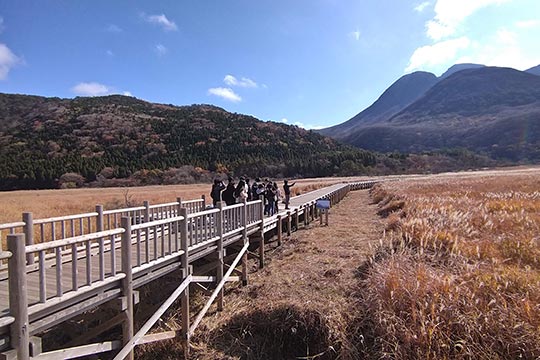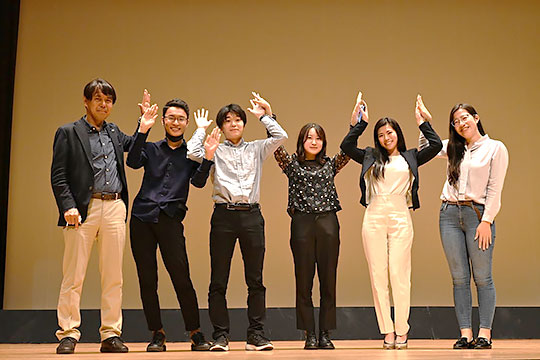APU and Oita Godo Shimbun have been offering cooperative open lectures since they both concluded a comprehensive agreement in the fall of 2017.
In the fall of 2020, the fourth such cooperative lecture was offered under the title of “Oita Heritage and Regional Tourism Development.” Taught by APS Professor Kubo Takayuki in cooperation with Oita Godo Shimbun, the lecture focused on understanding, leveraging, and publicizing Oita, and it attracted 34 APU students. This year, to commemorate the 120th anniversary of Oita Godo Shimbun’s founding, readers were asked to vote on their favorite tangible and intangible Oita heritage assets, and in the cooperative lecture, students learned how to leverage these assets for local tourism. After listening to lectures given by researchers of history, nature, and cultural properties, the students participated in field work where they deepened their knowledge of the materials covered in class through first-hand experiences. This year, the field work was conducted in the Kunisaki Peninsula, Bungoono City, and the Kuju Highlands. To prevent the spread of COVID-19, students wore masks, and two large buses were chartered to avoid crowding on the way to and from the field work sites.
On Wednesday, November 18, the course culminated with student presentations at Beppu City Public Hall where each group of students presented their ideas on community development initiatives utilizing Oita's heritage sites as tourism resources to an audience of local residents.
Comment from Professor Kubo
This year, the situation was completely different from previous years due to the pandemic, and we didn’t know if we would be able to offer the class with the field work component. First of all, all lectures by experts were switched to open online lectures. Even under such circumstances, it was great that we were able to welcome listeners from outside the university, which is something we had never done before. In addition, we were able to charter two buses for the field work, and we held the final presentations in the spacious auditorium at Beppu City Public Hall. By doing this, I realized that the same learning results as usual could be achieved.
We were able to complete our class without a hitch thanks to the efforts of many people, including Mr. Kamiashi an honorary member of the Oita Godo Shimbun Editorial Board who served as lecture coordinator, and Mr. Naramoto, the Director of the Society of Oitagaku.
These lectures made me realize that, by gathering in person, our students can learn more and fully appreciate the joy of learning. I would hope the smiling faces of the students after they finished their final presentations can serve as a ‘thank you’ to everyone who supported this lecture.
Once again, thank you very much.


